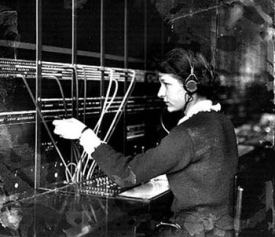
I’ve been trying to organize my thoughts about the terrain unfolding around the politics and technology of real-time microblogging. Here are my notes from the underground.
Sun Tzu said:
It is said that if you know your enemies and know yourself, you will not be imperiled in a hundred battles; if you do not know your enemies but do know yourself, you will win one and lose one; if you do not know your enemies nor yourself, you will be imperiled in every single battle.
1.0 Gillmor and Winer have called for a meetup, a camp, to bring the conversation about microblogging into the open.
1.1 As Winer noted, the users are ahead of the developers and product owners at this point in the timeline. That’s a unique opportunity.
1.2 Twitter prototyped an experience of the real-time web, giving us a glimpse of the power of IM and Track. It was withdrawn to attempt to insert a business model and reconfigure their infrastructure to support high volume real time messaging.
1.2.1 Track is the ability to follow keywords rather than specific people. This allows for vision into both sides of conversations happening outside a directed social graph and the ability to discover new relevant connections. When combined with a real-time feed it allows for the discovery of current events and conversations happening right now.
1.3 Previously, Twitter recognized the value of Track by purchasing Summize for a 10% stake in its future valuation.
1.4 When IM and Track were withdrawn, Twitter substituted an illustration of a whale for a user dialogue. Users were locked out of the dialogue and potentially about to be locked in the trunk.
2.0 Identi.ca begins to build a decentralized microblogging model that re-instates the real-time web, when combined with Dustin Salling’s Spy extensions.
2.1 Of the two services, only Identi.ca offers up the full XMPP stream to enable real-time Track. For the moment, this gives Identi.ca (Laconi.ca) the superior feature set.
2.2 To the extent that Laconi.ca deviates from Twitter’s interaction model it will destroy itself. With the exception of decentralization and Track, it has no advantages over Twitter.
2.2.1 It’s about users and network effects, not software features.
2.3 The addition of new features outside the current Twitter interaction model will not create growth. It will create confused users trying to understand the difference between Twitter and Identi.ca.
2.3.1 Some users are confused about the role of Open Source in the competition for users between Identi.ca and Twitter. If Identi.ca manages to grow to critical mass, it will have nothing to do with Open Source. Open Source is a good way to produce and maintain software; it doesn’t motivate users.
2.4 A bridge was extended across the divide between Identi.ca and Twitter. Messages, and half conversations pushed through into the Twittersphere, pointing back to the real-time web.
2.5 A two-way bridge would have the effect of flooding Identi.ca with Tweets and sucking the conversation back over to Twitter.
3.0 Twitter adds the “refers to” meta-data element. This is the piece of the puzzle that begins to radically change the shape of conversations unfolding through the Network. Tweets and Dents now addressable as URIs on the Network. Conversations potentially can be aggregated across platforms.
3.1 Gillmor proposes a three-party system including Twitter, Identi.ca (and other Laconi.ca installations) and aggregation and Track in the client (Twhirl, Gchat, etc.).
3.2 If Twitter has its own brand of Track and Identi.ca has its own brand of Track. Twitter demolishes Identi.ca. Only a three-party system will preserve Identi.ca and the ecosystem.
3.3 If neither Twitter nor Identi.ca have Track and real-time messaging. Twitter demolishes Identi.ca. Identi.ca’s highest priority has to be maintain its real-time Track advantage over Twitter. That window will close soon.
4.0 If you’re wondering why Twitter is winning, it’s because they don’t have to care about establishing a multi-party ecosystem for micro-blogging. They can simply wait until their competitors destroy themselves. (See quote by Sun Tzu at the top of the post)
4.1 All Continental Congresses start as a brawl. But as with Internet Identity, once the vendors understand they can’t, and shouldn’t own the space, cooperation is engendered.
4.2 Winer called Twitter a Corral Reef. Now we’d like the whole micro-blogging ecosystem to be a Corral Reef. It’s an opportunity happening right now in real time.
4.3 A strong bear hug at the right time, with the right players and the right conversation could create a solid foundation, a Corral Reef.
3 Comments

